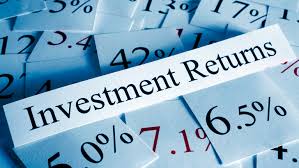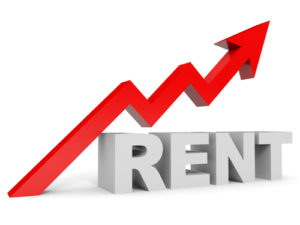Latest News
MILLIONS OF DOLLARS IN UNCLAIMED TAX – Five ways you can improve your Investment Profits

With the End of Financial Year fast approaching, now might be the time to consider your claimable items for the last financial year. Here are some items which many investors miss claiming each year!
1. Not claiming enough
As an investor it is important to be thorough with your returns. Items such as smoke alarms, security systems, swimming pools and even garbage bins are often overlooked, but hold valuable tax savings. Fixtures and fittings with a depreciable value less than $300 can be immediately claimed in the first financial year. A garbage bin valued at $250 and smoke alarms valued at $145 are just two examples of items, which are eligible and can generate immediate tax savings.
2. Believing your property is too old
The age of a property does not necessarily rule out all deductions. In order to claim the capital works allowance for structural elements of a rental property such as walls, floors and ceilings, your property must have been constructed after 1987. However, owners of older properties can still claim deductions for renovations carried out after the relevant date, even if these were completed by a previous owner. Plant and equipment assets within the property such as carpets, hot water systems, blinds and stoves are also eligible deductions.
3. Missing deductions after renovations
Items that are scrapped and replaced during renovations can be eligible for deductions. Ideally, a property should be assessed before renovating to determine the value for scrapped assets, such as tiles or appliances like dishwashers and refrigerators, then after renovating to account for new additions.
4. Believing that once a return is gone, it should be forgotten
Just because an investment was purchased some time ago, or you have already lodged your return and not included something deductible on it, does not mean you have to miss out. The ATO allows two previous tax returns to be adjusted so investors would be wise to examine whether they have missed anything and if so, speak to their relevant adviser to have their tax return amended.
5. DIY deductions
Investors are always seeking to maximise their profit on their property portfolio, but as in other areas this doesn’t mean doing your own taxes is the best path to take. Not only is using a professional tax deductible, you’re also more likely to get a bigger return than you would doing your taxes alone.
7 Most Common Investment Mistakes
- Buying an investment property without thoroughly looking at capital growth and rental return potential. Research is critical when buying an investment property. Most real estate institutes and real estate listing websites throughout Australia provide free online information about the long-term performance of individual suburbs in terms of capital growth, which is a good resource for investors.
- Buying an investment property close to home rather than looking at investment opportunities throughout Australia. That could mean that they achieve below average capital growth rates and miss out on potential property hot spots in other locations.
- Failing to seek independent information. It is important to seek out people who own several investment properties and ask them how they managed to build their portfolio. They can provide very important tips on how to avoid simple traps and pitfalls when buying investment properties.
- Managing the property yourself. This puts the investor at a very high risk of selecting the wrong tenant as they cannot undertake the necessary background checks on tenants as a reliable property management company.
- Not undertaking a full assessment of the true cost of buying and holding the property. For example, if the property is an apartment, there are additional cost issues compared to buying a stand-alone house (such as strata fees). In addition, if the property is old, it many incur higher maintenance costs.
- Selecting the wrong home loan (i.e. principal and interest), which is typical for an owner occupier home. Instead investors should consider interest-only loans, which will help increase cash flow.
- Buying a property in a location that is not attractive to tenants i.e. not close to amenities such as shops or transport. Investors can also buy a property in an area where there is an oversupply of properties meaning rents will be low and capital growth rates limited.

Beneficial changes to ‘EBM Landlord Insurance’
We are delighted to announce the introduction of significant changes to the RentCover range of landlord insurance policies. The new policy features and increased limits will apply from 1st February (new policies) and for existing policies renewing from 1st April.
Although there will be a small premium increase we are confident that the new features will ensure RentCover provides the most extensive level of cover available and meets the changing needs of our investor clients.
New changes to the Landlord Ultra Cover include:
Pet damage – up to $65,000
The risk of damage deters many landlords from allowing pets, but with 63% of households having pets, this severely restricts the available tenant pool. Additionally, pets do not need to be named on the lease.
Flood – up to Sum Insured
With cover up to the Sum Insured flood cover ensures the range is suitable for every region of Australia.
Accidental Damage – limit of two excesses
Accidental Damage limit has been increased to $65,000 allowing more substantial cover. A limit of two excesses will apply regardless of the number of separate “events”.
Malicious Damage – No depreciation
“New for old” replacement with an increased limit of $65,000 and only one excess applicable.
Drug Lab Cleanup – Includes resulting contamination
Whether it is a hydroponic marijuana crop or a meth lab, the resulting repairs and cleanup can be enormous. Included under Accidental Damage the increased limit to $65,000 will help mitigate the losses.
The RentCover Ultra premium will increase to $361.00 per annum.
For more information please head over to http://www.rentcover.com.au/
Top 10 Property Investment Tips
- Buy, Don’t Sell – Buy a quality property in a blue-chip area and where possible, never sell. Once you have one appreciating asset you can build up equity, which you can use to purchase your next property.
- Buy blue-chip – As mentioned, it’s worth paying market value for a better property in a top suburb than it is to get a lower price for a property no-one else really wants. There are always better performing suburbs that retain their value from decade to decade.
- It’s time in the market, not timing the market that counts – Don’t try to be a millionaire overnight. The real secret to wealth is compounding your investments. Aim for consistency.
- Go against the grain – Consider doing the opposite to what everyone else is doing. Buy when everyone sells; sell when they buy. Don’t listen to negative people telling you you’re doing it wrong.
- Don’t fear the gear – It’s perceived that debt is dangerous. Property debt can increase your return and get you a return faster. Know how much debt you are comfortable with.
- Be passionate about your investments – Believe in your investments. It will feed your drive and keep you focused.
- Be driven – Drive enables you to take risks that very few others would make and get you to where you want to be faster. Constantly focus on the results of your investments
- Keep refinancing – Keep tapping into the equity in your properties to buy more properties… and maybe a few luxury items along the way.
- Stick to your strategy – Work out what works for you. Once you develop a strategy, stick to it.
- Don’t retire on property rents – Most people think you’ve got to pay property off as quickly as possible, and retire on rents. But often it’s the capital growth that makes the real money.
BONUS TIP – Always consult the professional experts in their field to assist and guide you with advice.

The MYTH about the First Two Weeks Rent in Advance…

There is a well-known joke in the property management industry that occurs quite often at the end of a tenancy where a tenant states “What happened to my two weeks rent in advance that I paid when I moved into the property?” It is at this point when we have to take out our calendar and explain that “Yes you did pay two weeks’ in advance, but you used up this rent when you paid two weeks after moving in”.
As mentioned, we refer to this as an ongoing industry joke, but the tenant paying rent on time is no joke to us.
At this time of the month (when owners receive their rental statement) we can also receive telephone calls or emails asking ‘why is the tenant not two weeks in advance’? (Or a month in advance if that is the payment terms).
A Tenancy Agreement does outline the terms and conditions of the tenancy and the frequency of rental payments. However, the reality is the tenant does not have to pay their rent 2 weeks or a month in advance. It doesn’t even have to be one week in advance, just up-to-date.
As a managing agent when communicating with the tenant we do highlight the terms of payment in accordance with the Agreement, but the tenant is not considered in breach, until they fall behind in the rent, which is when you can issue a breach notice letter and if not remedied, a termination notice to vacate.
Unfortunately, in these economic times and with the lack of affordable housing across the nation we are also finding that some Tribunal Courts are becoming lenient with tenants allowing them to continue residing at the property with a performance order and payment plans for the outstanding rent.
It is our focus and priority to ensure that the tenants’ rent is paid on time.
What you need to know about increasing the rent

Are you investing in property with planning, purpose and direction?
Property investing is about making money. There are short-term returns and long-term returns.
Long-term returns relate to capital gains achieved over a long term and short-term returns are the profits you make from the rent less expenses.
The obvious way to increase short-term returns is to minimise expenses and obtain the highest possible rent achievable.
Landlords are often afraid to raise the rent on their tenants for fear that they will move out. But the reality is – rising rents is part of a healthy rental market and tenants don’t expect to pay the same amount for their home, year after year, after year.
There are three smart investing tips for increasing the rent.
1. Gather evidence: It is important to know what the market rent is. How does the tenant’s current rent compare to other properties that are ‘available for rent’. Don’t compare to friends and families rent of similar properties, as the ‘market rent’ is what is achievable right now if the property was to become vacant. The rent achievable can fluctuate with supply and demand and at different times of the year.
2. Offer a discount: If you have a great long-term tenant and you want to reward them, we can let the tenant know that you want to offer a rental increase discount. Our evidence may suggest that the market rent is $440 when the tenant’s current rent is $400. Instead of a $40 per week increase we could state that the landlord has requested a $20 per week increase, being a $20 discount.
3. Implement regular increases: This is where some landlords can get it wrong. They have long-term tenants and leave the rent unchanged throughout the tenancy, missing out on putting more investment dollars in the bank. Tenants understand (while they might not like it) that rents increase. The tenants will also be comparing their property to other rentals that are ‘available for rent’ in times of rent increases. Rent increases (market rent reviews) should take place at each tenancy change or a minimum of one per annum.
4 Tips to get the most out of a Property Manager

Here is a great little excerpt we found on Realestate.com.au and just couldn’t help but re-blog it.
Property managers come in different shapes and sizes. Just as you research other aspects of investing in property, you should look carefully at the different types of managers out there and the different ways they can support you and your needs.
Some selling agents also manage properties, and other property managers specialise in this area.
Here are four key tips to help you choose the right property manager and get the most out of your relationship.
1. Focus matters
Your property manager must have experience with the business of managing properties because it’s an intricate area that needs the relevant industry expertise in order to maximise your occupancy rates and rental returns.
2. The care factor
Select a property manager that you feel comfortable with and one that will treat your apartment or home like it is their own, someone who always remembers that it’s your prime investment and will work diligently to maximise your rental income whilst efficiently managing tenant demands and maintenance bills.
3. Size (of list) matters
Ask the property manager about how many prospective tenants they’ll be marketing your property to. How big is their database? Is it specialised in any way (i.e. how qualified are those leads)? You want to know your property manager has a sizeable number of relationships they can reliably draw on to fill your property and meet your needs on an ongoing basis. This doesn’t always mean going with the biggest, most established agency. Simply that you want someone with a track record and a solid market base.
4. Go local
Make sure you appoint the most professional, knowledgeable and experienced property management service, in the local area of the investment property. This will ensure the manager is close at hand and has local knowledge relevant for your property.
Anyone who is toying with the idea of buying an investment property should research the property management services on the market before completing the purchase. Better to be safe in experienced hands sooner than later.
All New Website

 We are pleased to announce our brand new website is up and running!
We are pleased to announce our brand new website is up and running!
It’s been a long time coming and much blood, sweat and tears have gone into creating this great new site. Have a look around and let us know what you think.
Property Max Realty is a premium Property Management Agency with a focus on care and customer service. With two experienced team members we ensure you get the quality care that your properties deserve.
Property Max are specialists in managing your investments and will ensure growth and larger returns. Contact us now to experience the difference.
With Property Max; your investment is in good hands.
